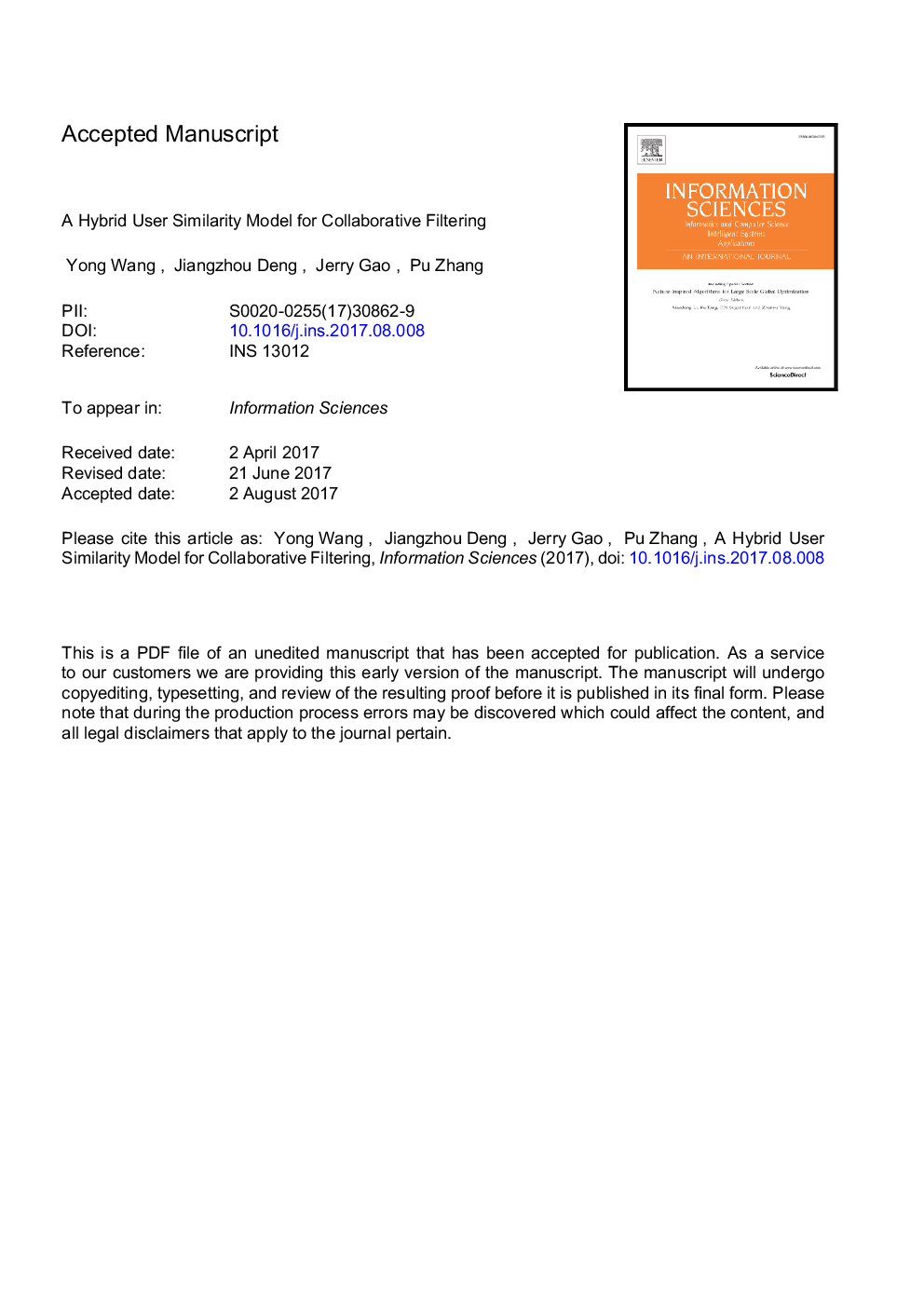| Article ID | Journal | Published Year | Pages | File Type |
|---|---|---|---|---|
| 4944210 | Information Sciences | 2017 | 37 Pages |
Abstract
In the neighborhood-based Collaborative Filtering (CF) algorithms, the user similarity has an important effect on the result of CF. In order to evaluate the user similarity comprehensively and objectively, we proposed a hybrid model. In the model, an item similarity measure is designed based on the Kullback-Leibler (KL) divergence, which is used as a weight to correct the output of an adjusted Proximity-Significance-Singularity model. Meanwhile, a user preference factor and an asymmetric factor are considered in our model to distinguish the rating preference between difference users and improve the reliability of the model output. The tests on different datasets show that the proposed user similarity model is suitable for the sparse data and effectively improves the prediction accuracy and the recommendation quality.
Related Topics
Physical Sciences and Engineering
Computer Science
Artificial Intelligence
Authors
Yong Wang, Jiangzhou Deng, Jerry Gao, Pu Zhang,
